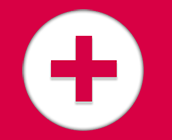
Cambridge College of Healthcare & Technology helps prepare students for a rewarding career in computed tomography or CT through the Certificate in Computed Tomography Review. We provide current radiologic technologists, nuclear medicine technologists and radiation therapists with the skills needed to thrive in the field of CT.
What Is Computed Tomography (CT) and How Does It Work?
Computed tomography, also known as a CT scan, is a diagnostic imaging test used to see detailed images of organs, tissues, bones and vessels. CT scans are used to see 3D images that are of higher quality than typical x-ray images. For example, a physician may choose to use a CT scan to find tumors or masses within the internal organs.
A CT scan involves a motorized x-ray that rotates around the patient, sending x-ray beams throughout the body. After each rotation, the CT machine constructs a piece of the final image. With each rotation, another piece is completed. At the end of the scan, a 3D image is created of the part of the body in question.
What Is Computed Tomography (CT) Used For?
CT scans have many uses involving the identification and diagnoses of diseases and injuries of the body. CT scans can be used to detect fractures or other issues with the bones not otherwise seen on x-ray. They can also detect tumors, blood clots or infection within the internal organs or vessels.
Some physicians will use CT scans to carry out other treatments such as biopsies and radiation therapy. They will also use CT to see if a treatment plan is working as it should by comparing CT scans over time.
How Do You Become a Computed Tomography (CT) Specialist?
To become a CT specialist or technologist, you’ll need to first attend an accredited radiologic technologist program. At Cambridge, we offer an Associate’s Degree in Radiologic Technology as well as a Bachelor of Science in Radiologic Sciences. After you graduate, you can choose to seek certification through the ARRT. Although not required, employment will increase with licensure.
Once your initial education requirements are completed, you’ll need to complete additional training in CT. Cambridge offers the Computed Tomography (CT) Review program, a certificate program that takes approximately four weeks to complete. Once completed, you’ll be able to execute the responsibilities of a CT professional.
Where Do Computed Tomography (CT) Specialists Work?
CT specialists help monitor patient CT scans, position patients for optimal results, monitor equipment settings, protect patients and so much more. Because of the demand for CT scanning in the medical industry, specialists can work in a wide range of settings such as:
- Hospitals
- Long-term care facilities
- Clinics
- Doctor’s offices
- Acute care facilities
Is Computed Tomography (CT) Hard?
The education required to become a CT specialist can be challenging. You must understand the anatomy of the body as well as proper positioning for optimum imaging. CT will also require you to begin IVs for contrast material and give you the responsibility of assessing the quality of the scans.
Although challenging subject matter, a career as a CT specialist or technologist is rewarding. Through your efforts, you’ll be able to make a difference in the lives of many patients each day. And through Cambridge, we give you everything you need to prepare for a successful career in the field. From study guides to support, our faculty and staff are always here to help.
How Much Do Computed Tomography (CT) Specialists Make?
According to Glassdoor, CT specialists or technologists see an average salary of $61,689 per year, with $48,000 being the lowest and $83,000 being the highest. Your average yearly salary will depend on the facility, location and specialty you choose.
Ready to Learn More?
If you’re ready to get started on your career in CT, reach out to Cambridge College of Healthcare & Technology to learn more. Give us a call at 877-206-4279.
More on Computed Tomography (CT) Common Questions

